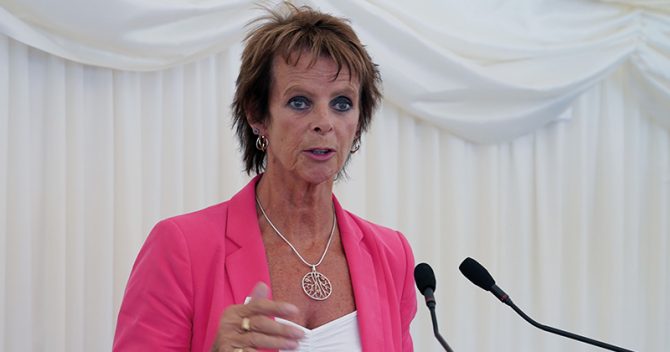The way the apprenticeships programme is evolving is “out of kilter” with the government’s own objectives and “poor execution” has created “serious longer-term problems”, the Public Accounts Committee has warned.
The damning conclusion was made in the influential committee of MPs’ new apprenticeships progress report that said the reforms made in spring 2017 are failing to deliver.
It hits out at the DfE’s “focus” on higher-level apprenticeships and levy-paying employers which “increases the risk that minority groups, disadvantaged areas and smaller employers miss out on the benefits that apprenticeships can bring”.
They ought to come clean and think about how to reset this
The PAC reiterated what many other sector leaders have warned: that some employers are using apprenticeship funds to pay for professional training or management courses that they would otherwise have paid for themselves.
Speaking to FE Week, PAC chair Meg Hillier (pictured) said the Department for Education has “given away the power to control” this unintended consequence, and it has lost sight of the original goals of the apprenticeship reforms.
“Obviously some companies were already funding people through MBAs and so on, and I’m absolutely fine with people having continuing professional development at every level, but that’s not really what we all thought was going to happen with apprenticeships,” she said.
“If levy funding goes on these expensive standards there will be less for lower level apprenticeships where the investment in somebody makes a huge difference to their lives, the productivity of the UK and the sector they are going into. A few people doing an MBA I’m sure is helpful to them and the company they are working for, but that’s not what ministers intended when coming up with the reforms.”
The PAC report said employers’ “preference” for higher-cost apprenticeships means the programme is expected to come under growing financial pressure in the coming years.
In December, the Institute for Apprenticeships estimated that the apprenticeships budget for England could be overspent by £0.5 billion this year, rising to £1.5 billion during 2021/22.
The National Audit Office then warned in March there was a “clear risk” the apprenticeship programme is not financially sustainable after the average cost of training an apprentice hit double what the government predicted – rising from around £4,500 to £9,000.
It said that employers are developing and choosing more expensive apprenticeship standards at higher levels than was expected, which is “absorbing” the public funding.
Following this, the Association of Employment and Learning Providers called for all level 6 and 7 apprenticeships to be removed from the scope of levy funding in order to relieve mounting pressure on the budget.
Jonathan Slater, the DfE’s permanent secretary, then admitted to a PAC hearing that “hard choices” will need to be made in the face of an imminent apprenticeship budget overspend – which could include prioritising some apprenticeships over others.
Hillier told FE Week that it will be a challenge for the government to now tell employers what they can and cannot spend their apprenticeship levy funds on after giving them free rein to do so.
“There is a big issue there,” she said. “The DfE needs to say they didn’t expect these consequences and what they’re going to do about it.
“They ought to come clean and think about how to reset this while keeping the best bits.”

She added that the DfE is “in danger of moving the goalposts” if they say they are happy with the current set-up and the “hard choices could be saying to some companies ‘you may think you can do what you want with the apprenticeship levy but we’re going to push for a focus at the lower end’”.
The PAC made a series of recommendations to the DfE in its report, which FE Week has pulled out here.
Apprenticeships and skills minister, Anne Milton defended the government’s reforms.
“We are making apprenticeships better,” she said. “They are now longer, higher quality and have more off-the-job training.
“Our reforms have also seen more employer buy-in giving employers greater control so they can invest in the people and skills they need.”
She added there is “still work to be done, but we won’t sacrifice quality for quantity”.
The DfE is now “considering the PAC’s recommendations carefully and will respond in due course”.









Your thoughts